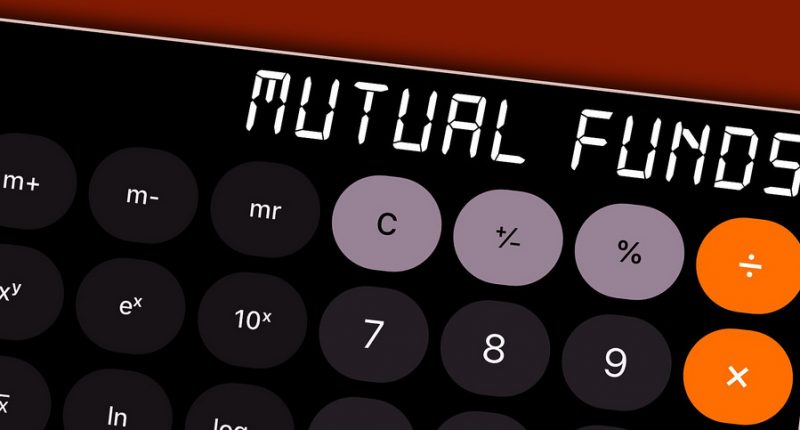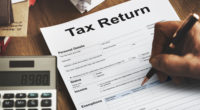The equity-oriented mutual funds are covered under the definition of capital asset in the Income Tax Act. The taxpayer has to pay tax only in the year of sale of such assets. There is no tax on unrealised gains. The taxability on the sale of equity mutual funds depends on the holding period of these assets from the date of purchase.
When the taxpayer sells equity shares or equity-oriented mutual funds after a 12-month holding period, the assets are classified as long-term capital assets. When the taxpayer sells equity shares or equity-oriented mutual funds before 12 months of purchase, they are classified as short-term capital assets. Section 111A provides short-term capital gains (STCG) tax on the sale of equity shares or equity-oriented mutual funds. Section 112A provides long-term capital gains (LTCG) tax on the sale of equity shares or equity-oriented mutual funds.
What is the tax liability on the sale of equity mutual funds?
If the taxpayer redeems units of equity mutual funds after 12 months of purchase (long-term capital assets), he has to pay tax at 10% without indexation on the gain above Rs 1 lakh made during the year.
However, if the taxpayer redeems units of equity mutual funds before 12 months of purchase, the gain on sale of such short-term capital assets is taxed at 15%. One has to pay cess at 4% on the capital gains tax.
Computation of income tax on the sale of equity funds
Let us assume, Mr A has a salary of Rs 5.7 lakh for the FY 2020-21. Eligible 80C deductions are Rs 1.5 lakh. The employer has deducted a TDS of Rs 17,160. Mr A has also earned-
- Short-term capital gain on equity mutual funds is Rs 2 lakh.
- Long-term capital gain on equity mutual funds is Rs 2 lakh.
- Computation of income tax liability of Mr A if the short-term capital gain on equity mutual funds is Rs 2 lakh (calculations as per old tax regime)
| Particulars | Amount (in Rs) | |
| Income from Salary | ||
| Gross Salary | 7,20,000 | |
| Less: | Standard deduction | 50,000 |
| Taxable income from Salary | 6,70,000 | |
| Add: | Income from capital gains | |
| Short-term capital gain (STCG) | 2,00,000 | |
| Gross Total Income | 8,70,000 | |
| Less: | Chapter VI-A deductions | |
| 80C | 1,50,000 | |
| Taxable Income
-Income other than STCG (Rs 5,20,000)* -STCG (Rs 2,00,000) |
7,20,000 | |
| Tax on Normal Income (Rs 5,20,000) | 16,500 | |
| Tax on STCG (Rs 2,00,000) at 15% | 30,000 | |
| Income tax thereon | 46,500 | |
| Add: | Cess at 4% | 1,860 |
| Total tax | 48,360 | |
| Less: | TDS | 17,160 |
| Income tax payable** | 31,200 |
- Computation of tax, if there is a long-term capital gain on mutual funds
| Particulars | Amount (in Rs) | |
| Taxable Income (same calculations as above)
-Income other than LTCG (Rs 5,20,000)* -LTCG (Rs 2,00,000) |
7,20,000 | |
| Tax on Normal Income (Rs 5,20,000) | 16,500 | |
| Tax on LTCG (Rs 2,00,000- Rs 1,00,000) at 10% | 10,000 | |
| Income tax thereon | 26,500 | |
| Add: | Cess at 4% | 1,060 |
| Total tax | 27,560 | |
| Less: | TDS | 17,160 |
| Income tax payable** | 10,400 |
* The deduction under Section 80C to 80U is not allowed against STCG under section 111A and LTCG under section 112A. Therefore, Section 80C deduction is taken from normal income, i.e. Rs 6,70,000-Rs 1,50,000.
**In addition to the income tax payable amount, the taxpayer is liable to pay interest under Section 234B and 234C for non-payment or short payment of advance tax.
Liability to pay advance tax
If the total tax liability is more than Rs 10,000, the taxpayer (except senior citizens not having income from business or profession) has to pay tax in advance in the year preceding the relevant assessment year. After deduction of TDS, advance tax, MAT credit, and relief (including relief under section 89), any balance tax payable can be paid as self-assessment tax during the assessment year but before filing the income tax return. If there is a default or delay in payment of the advance tax, the taxpayer will be liable to pay interest charges for the same.
In the above example, the employer of Mr A has deducted TDS on income from a salary of Rs 17,160. Since the total tax liability is above Rs 10,000, Mr A should have paid the advance tax. Mr A will have to pay the balance tax of Rs 31,200 as self-assessment tax. In addition to self-assessment tax, he has to pay interest under Section 234B (for advance tax paid less than 90%) and interest under section 234C (for default in payment of advance tax instalment).
What if the total income is less than the basic exemption limit?
If the income (excluding STCG and LTCG on equity shares/mutual funds) of the taxpayer is below the basic exemption limit (income up to which the taxpayer need not pay tax), you can set off such a shortfall with the short-term or long-term capital gain. It reduces the tax outgo.
For instance, the basic exemption limit of the individual below 60 years of age is Rs 2.5 lakh. Assume that his normal income is Rs 2 lakh and STCG is Rs 1.5 lakh. The normal income is short by Rs 50,000 from the basic exemption limit. Adjust Rs 50,000 from STCG income and pay tax on the balance STCG income of Rs 1 lakh.
The adjustment of the basic exemption limit is allowed against STCG and LTCG on equity share and equity-oriented mutual funds and other LTCG.
Set-off of losses
There is one more means to reduce the capital gains tax liability. One can set off the capital losses against the capital gains. As per the Income Tax Act, the taxpayer can set off long-term capital losses only against the long-term capital gains. Short-term capital losses can be set off against short-term and long-term capital gains. After such adjustment, any unadjusted capital loss can be carried forward and adjusted with gains of subsequent years. However, one can carry forward the losses only up to eight subsequent years. The taxpayer can carry forward the capital losses only if he files the income tax return in the year of loss.
Hence, the taxpayer needs to report the gain or loss on the sale of capital assets in the income tax return.
For any clarifications/feedback on the topic, please contact the writer at namita.shah@cleartax.in

I’m a chartered accountant and a functional CA writer by profession. Reading and travelling in free time enhances my creativity in work. I enjoy exploring my creative side, and so I keep myself engaged in learning new skills.





